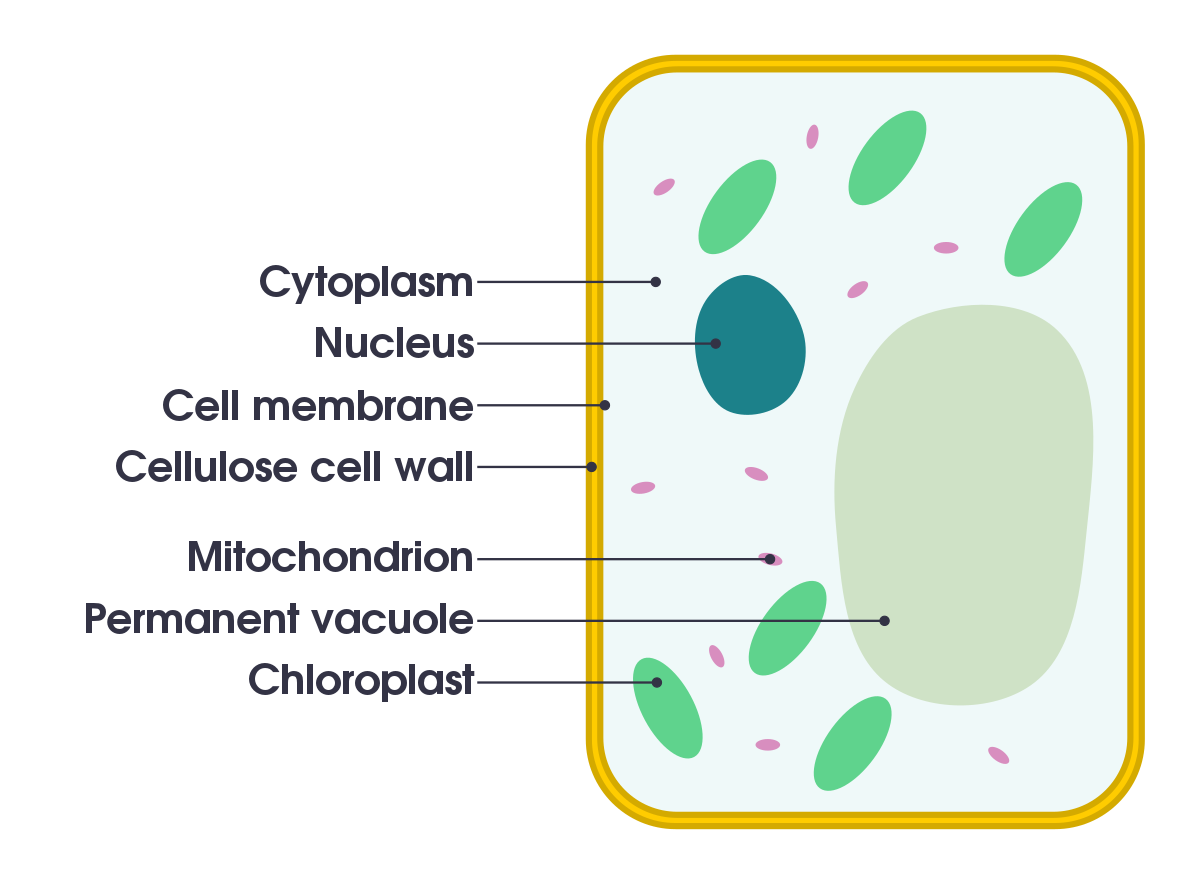biology - cells x level of organisation
- Created by: studyyin
- Created on: 26-12-17 14:41
Fullscreen
Cells & level of organisation
- There are 2 types of cells: animal cell and plant cell.
Animal cell
/animal_cell-56c765663df78cfb3788382b.jpg)
- Nucleus: contains genetic information and controls the cell
- Ribosomes: make proteins for cell by connecting amino acids
- Cytoplasm: jelly-like substance that is the site of chemical reactions
- Golgi vesicles: distributs molecules/nutrients/proteins to where they should go in the cell or store it
- Rough endoplasmic reciculum: make membrane proteins that will attach to membranes
- Cell membrane: controls what goes in and out of the cell
- Mitochondria: site of respiration in which it releases energy for cell
Plant cell

- Cell wall: supports the cell by giving it structure
- Vacuole: stores water and sugar for plants
- Chloroplast: contains the chlorophyll that is the site of photosynthesis
Prokaryotic & eukaryotic cells
- Prokaryotic cells are smaller than eukaryotic cells and simpler than eukaryotes as they are evolutionarily older cells and they have no membranes that separate the organelles. They have circular DNA and a nucleoid.
- Eukaryotic cells are more complex than prokaryotes and have all other organelles and linear DNA.
Specialised cells
Red blood cell have no nucleus and is in this biconcave shape that will increase its surface area to carry as much oxygen as possible with haemoglobin. It is also flexible to squeeze through blood vessels.
Nerve cell have…


Comments
No comments have yet been made